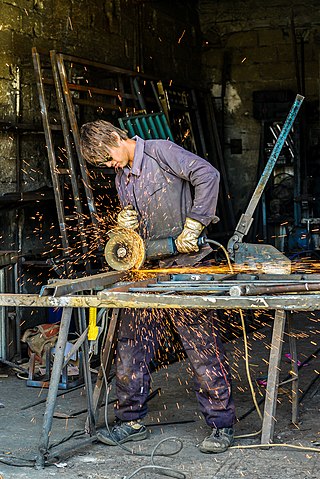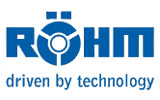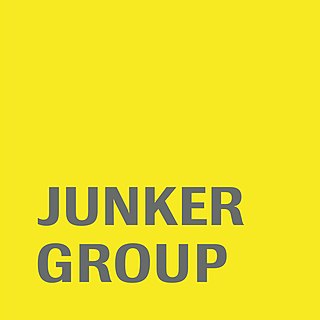
A machine tool is a machine for handling or machining metal or other rigid materials, usually by cutting, boring, grinding, shearing, or other forms of deformations. Machine tools employ some sort of tool that does the cutting or shaping. All machine tools have some means of constraining the workpiece and provide a guided movement of the parts of the machine. Thus, the relative movement between the workpiece and the cutting tool is controlled or constrained by the machine to at least some extent, rather than being entirely "offhand" or "freehand". It is a power-driven metal cutting machine which assists in managing the needed relative motion between cutting tool and the job that changes the size and shape of the job material.

Metalworking is the process of shaping and reshaping metals to create useful objects, parts, assemblies, and large scale structures. As a term it covers a wide and diverse range of processes, skills, and tools for producing objects on every scale: from huge ships, buildings, and bridges down to precise engine parts and delicate jewelry.

A machinist is a tradesperson or trained professional who operates machine tools, and has the ability to set up tools such as milling machines, grinders, lathes, and drilling machines.

Machining is a manufacturing process whereby a desired shape or part is achieved by the controlled removal of material from a larger piece of raw material by cutting; it is most often performed with metal material. These processes are collectively called subtractive manufacturing, which utilizes machine tools, in contrast to additive manufacturing, which uses controlled addition of material.

Allgemeine Elektricitäts-Gesellschaft AG was a German producer of electrical equipment. It was founded in 1883 by Emil Rathenau as the Deutsche Edison-Gesellschaft für angewandte Elektricität in Berlin.
Ludwig Loewe was a German merchant, manufacturer, philanthropist and a member of the Reichstag. Loewe's companies became involved in the production of armaments, employing famous designers and creating notable guns.
Verein Deutscher Ingenieure (VDI) is an organization of about 135,000 engineers and natural scientists. More than 12,000 honorary experts process the latest technical findings each year to promote the technology location. Established in 1856, it is the largest engineering association in Western Europe. Its role in Germany is comparable to that of the American Society of Civil Engineers (ASCE) in the United States or Engineers Australia (EA) in Australia, but includes broader field work. It is not a union, but promotes the advancement of technology and represents the interests of engineers and engineering businesses in Germany.

Netphen is a town in the Siegen-Wittgenstein district, in North Rhine-Westphalia, Germany. It lies on the river Sieg, roughly 7 km northeast of Siegen.

Haas Automation, Inc is an American machine tool builder headquartered in Oxnard, California. The company designs and manufactures lower cost machine tools and specialized accessory tooling, mostly computer numerically controlled (CNC) equipment, such as vertical machining centers and horizontal machining centers, lathes/turning centers, and rotary tables and indexers. Most of its products are manufactured at the company's main facility in Oxnard. The company is also involved in motorsports: it owns the Haas F1 Team and is a co-owner of Stewart-Haas Racing in NASCAR. Haas is one of the largest machine tool builders in the world by total unit volume.

Grinding is a type of abrasive machining process which uses a grinding wheel as cutting tool.

The Sächsische Maschinenfabrik in Chemnitz was one of the most important engineering companies in Saxony in the second half of the 19th century and the first two decades of the 20th century. Including its various predecessor businesses, the firm existed from 1837 until its liquidation in 1930, and individual branches of the company taken over by others continued to operate until 1990. The company is closely linked with the name of its founder and long-time manager, Richard Hartmann, whose name formed part of the new company title in 1898: the Sächsische Maschinenfabrik vormals Richard Hartmann.
Georg Fischer comprises three divisions GF Piping Systems, GF Casting Solutions, and GF Machining Solutions. Founded in 1802, the Corporation is headquartered in Switzerland and is present in 33 countries, with 140 companies, 57 of them production facilities. Its approximately 15 000 employees generated sales of CHF 4.57 billion in 2018. GF offers pipes for the safe transport of liquids and gases, lightweight casting components in vehicles, and high-precision manufacturing technologies.

RÖHM is a German chucking tool manufacturer. It was founded in 1909 by Heinrich Röhm. Its headquarters is in Sontheim/Brenz, Germany. The company's products are especially for the automobile industry, engineering, the energy sector, rail vehicles and aerospace. From the 1950s until 2010, they also manufactured a line of inexpensive firearms under the Röhm Gesellschaft (RG) division. In 2010, RG was sold to Umarex.

Schöma is a company based in Diepholz, Germany, specialising in the construction of small diesel locomotives.
Gebr. Heller Maschinenfabrik GmbH is a German manufacturer of milling machines, manufacturing systems and crankshaft and camshaft machines. The company's headquarters is located in Nürtingen in the Stuttgart region of South Germany. The company's customers come from a variety of industries including automotive manufacturers and their suppliers, machine building industry, contract manufacturers, power engineering, tool and die manufacturing as well as aerospace companies.
Maschinenfabrik Liezen und Gießerei GesmbH is a foundry and mechanical engineering company based in Liezen, Austria. The company's origins date to 1939 when a factory was established in Liezen for war materials production. Post WWII the company "Hütte Liezen" entered state control and became a subsidiary to VÖEST in the 1950s. During the 1980s the company was involved in the 'Noricom' arms scandal due to its production of heavy artillery which were illegally exported.
Loesche GmbH is an owner-managed engineering company founded in Berlin in 1906 and currently based in Düsseldorf, Germany that designs, manufactures and services vertical roller mills for grinding of coal, cement raw materials, granulated slag, industrial minerals and ores. At present, more than 400 people are working for Loesche in Germany and around 850 are employed worldwide.

KAPP NILES GmbH & CO. KG is a manufacturer of machines and tools for finishing of gears and profiles. About a third of the turnover is made in Germany and two-thirds in international operations. [1] The company headquartered in Coburg (Bavaria) was founded in 1953.
Maschinenfabrik Herkules Hans Thoma GmbH is a German technology and market leader in the manufacturing of machine tools for roll machining. The company is based in Siegen, with German and international service and production units in Meuselwitz (Germany), the US and India. The family-owned company is headed by Christoph Thoma in the third generation.

The JUNKER Group is a company group consisting of the brands JUNKER, LTA, and ZEMA. It manufactures machines for CBN and corundum grinding, and filtration systems for industrial air purification.











